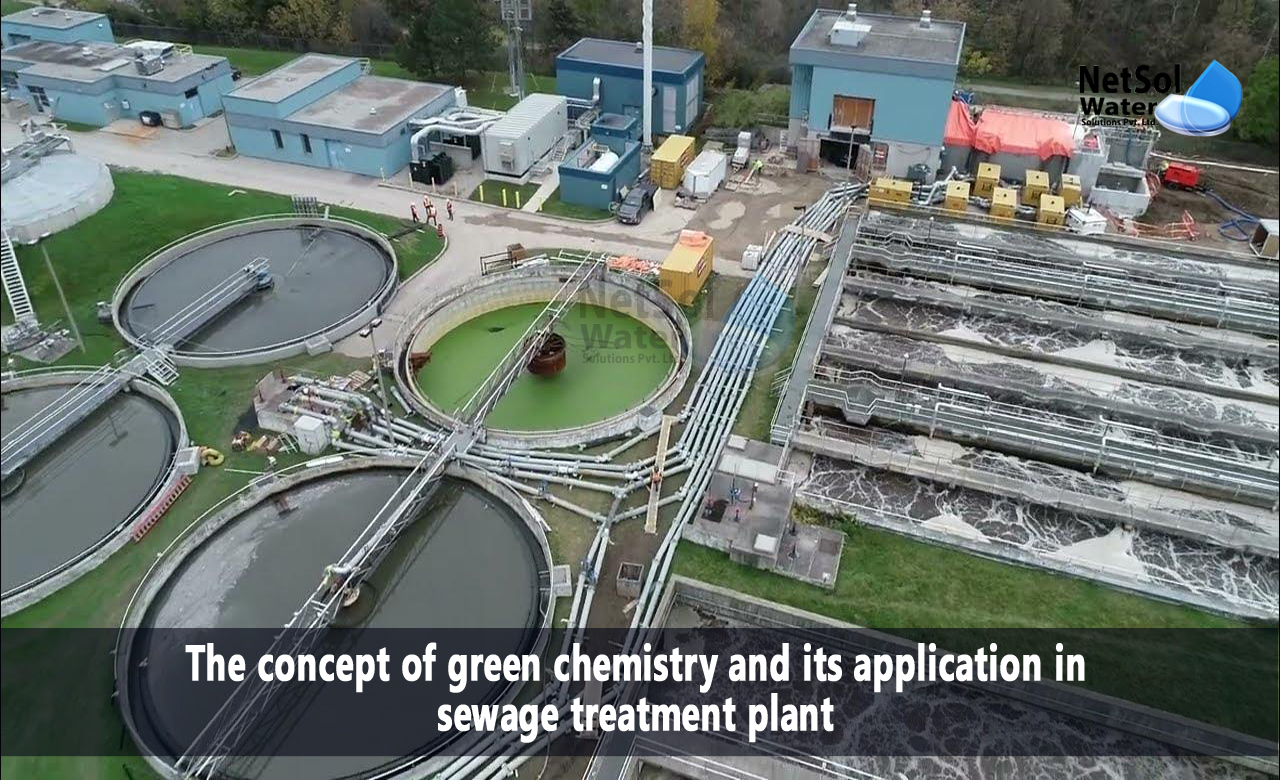What is the concept of green chemistry and its application in STP Plant?
Sewage treatment plants (STPs) play a vital role in wastewater management, but traditional treatment processes can have negative environmental impacts. However, the principles of green chemistry offer innovative solutions for advancing sustainable treatment processes in STPs.
We will now explore the concept of green chemistry and its application in sewage treatment, highlighting the benefits of adopting sustainable practices.
Understanding Green Chemistry
1· Principles of Green Chemistry:
Green chemistry involves the design and development of chemical products and processes that reduce or eliminate the use and generation of hazardous substances. It aims to minimize environmental impacts, conserve resources, and promote sustainability. Key principles include waste prevention, atom economy, energy efficiency, and the use of safer chemicals.
2· Application to Sewage Treatment:
Green chemistry principles can be applied to various aspects of sewage treatment, including the selection of treatment technologies, chemical usage, and process optimization. By integrating sustainable practices, STPs can reduce pollution, conserve resources, and enhance overall environmental performance.
Green Chemistry Applications in STPs
1. Resource Recovery:
Green chemistry encourages the recovery and reuse of valuable resources from wastewater. Techniques such as anaerobic digestion and thermal hydrolysis allow for the generation of biogas, which can be used for energy production. Additionally, nutrient recovery processes enable the extraction of valuable nutrients like phosphorus and nitrogen, which can be recycled as fertilizers.
2. Minimizing Chemical Usage:
Traditional treatment processes often rely on the use of chemical additives for coagulation, flocculation, and disinfection. Green chemistry promotes the use of safer and more environmentally friendly alternatives. For example, natural coagulants derived from plants or bio-based polymers can replace conventional chemical coagulants, reducing the environmental impact.
3. Energy Efficiency:
Green chemistry emphasizes energy-efficient treatment processes. Implementing technologies such as anaerobic treatment and membrane bioreactors can reduce energy consumption compared to traditional aerobic processes. Utilizing renewable energy sources, such as solar or wind power, for plant operations further enhances energy efficiency.
4. Green Infrastructure:
Green chemistry principles can guide the design and construction of sustainable infrastructure in STPs. Green roofs, rain gardens, and constructed wetlands can be integrated into treatment systems to enhance water filtration, improve biodiversity, and reduce stormwater runoff.
Benefits of Green Chemistry in STPs
1. Environmental Protection:
By minimizing the use of hazardous chemicals, reducing energy consumption, and promoting resource recovery, green chemistry practices contribute to the protection of ecosystems and water quality. It helps prevent the release of pollutants into the environment, conserves natural resources, and reduces greenhouse gas emissions.
2. Cost Savings:
Adopting green chemistry practices in STPs can lead to cost savings in the long run. Resource recovery processes, such as biogas generation, can offset energy costs, while the use of safer chemicals reduces the need for costly hazardous waste disposal.
3. Public Health and Safety:
Green chemistry practices prioritize the use of safer chemicals, reducing potential risks to workers' health and safety. Moreover, minimizing the release of pollutants into water bodies improves public health by ensuring the availability of clean and safe water resources.
4. Sustainability:
Integrating green chemistry principles in STPs aligns with broader sustainability goals. It promotes the efficient use of resources, reduces environmental impacts, and fosters a circular economy approach by recovering valuable resources from wastewater.
Summary:
Green chemistry offers a transformative approach to sewage treatment, advancing sustainable practices in STPs. By embracing resource recovery, minimizing chemical usage, promoting energy efficiency, and incorporating green infrastructure, STPs can reduce their environmental footprint while improving water quality and public health. Implementing green chemistry principles not only protects the environment but also delivers economic benefits and contributes to long-term sustainability. As we strive to build a greener future, the integration of green chemistry in sewage treatment processes paves the way for a more sustainable and resilient wastewater management system.
Leading manufacturer of sewage treatment plants in India.
Netsol Water is the leading manufacturer, supplier, and exporter of a quality selection of water treatment, and wastewater treatment products in India, by using advanced sewage treatment methods.
RO plants, water softeners, ETPs, STPs, DM plants, AMC, O&M, Ultra filtration, UV, Ozonation, ZLD plants, Anoxic tanks, and other goods and services are available from us. We also provide services to businesses in sectors including automotive, pharmaceutical, textile, pulp & paper, beverages, refineries, schools, hospitals, office buildings, and hotels, among others.
Netsol Water is Greater Noida-based leading water & wastewater treatment plant manufacturer. We are industry's most demanding company based on client review and work quality. We are known as best commercial RO plant manufacturers, industrial RO plant manufacturer, sewage treatment plant manufacturer, Water Softener Plant Manufacturers and effluent treatment plant manufacturers. Apart from this 24x7 customer support is our USP. Call on +91-9650608473, or write us at enquiry@netsolwater.com for any support, inquiry or product-purchase related query.



